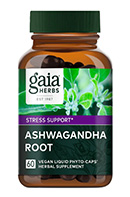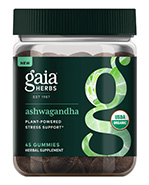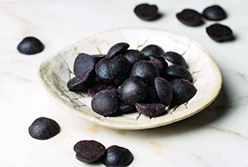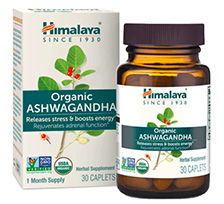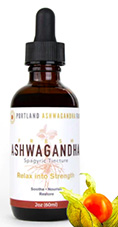Ashwagandha Revisited ~ New Research on an Ancient Plant
Ashwagandha Revisited ~ New Research on an Ancient Plant
According to Spins magazine tracking data, the herb ashwagandha experienced a 33% growth in sales in 2021 over the previous year in the mood support category. It ranked ninth in the top ten best-selling ingredients for sleep. It is also ranked in the top 25 best-selling ingredients on the whole. Clearly this herb is not just becoming well-known: it is well-known. Here at Evergreen Nutrition it is one of the top-requested herbal supplements. We will look at some exciting new research on this herbal superstar in this newsletter.
Most of ashwagandha’s current popularity stems from its profound adaptogenic effects. In this regard it is helpful for sleep as well as energy production. It provides gentle tonic support for the adrenal glands. Many clinical studies have proven its ability to support the body’s response to stress, physical, environmental, and psychological. In its native India, this herb is known as a Rasayana, described as an herbal preparation that promotes a youthful state of physical and mental health and expands happiness. Ashwagandha holds the most prominent place in the Rasayanas. It also belongs to a sub-group of Rasayanas known as Medhyarasayanas, referring to the mind and mental/intellectual capacity. It is used to promote intellect and memory.
Brain Effects
Ashwagandha’s compounds, such as withanolides, are antioxidant and anti-inflammatory and are able to cross the blood-brain barrier where they exert their beneficial effects.
Anxiety/Depression
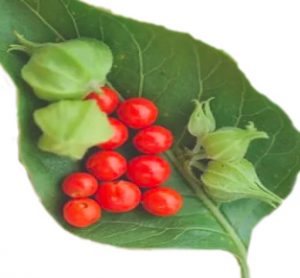
It is estimated that nearly 10% of Americans suffer from mood disorders like anxiety, depression, and bipolar disorder in any given year. Ashwagandha stimulates GABA receptors, leading to decreases in anxiety and stress. In all three standard Anxiety tests, ashwagandha induced a calming anxiolytic effect comparable to the drug Lorazepam (Valium). Many of the drugs used to treat these conditions use this same pathway but come with undesirable side-effects. Ashwagandha’s support here does not have any side-effects. In animal studies on depression, extracts of ashwagandha reversed signs of behavioral despair and other abnormalities and improved cognitive function. Two studies in rodents compared the magnitude of the impact to the effects of Prozac, a drug used to treat depression and other disorders. In human patients with schizophrenia, who are prone to anxiety and depression, ashwagandha extract reduced symptoms of both.
Brain Cell Protection
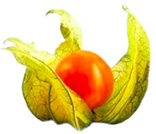
Ashwagandha may offer protection against neurodegenerative diseases such as Alzheimer’s and Parkinson’s disease. In Alzheimer’s, one of the primary features is the build-up of an abnormal protein called beta-amyloid. This creates toxic levels of inflammation and deterioration in brain function. Studies with ashwagandha have shown that it can reduce the formation of amyloid in brain cells, prevent the accumulation of amyloid, and also reduce the toxic impact of existing amyloid, thereby protecting brain cells from inflammation and injury. In addition, it has been shown to remove existing amyloid deposits. In Alzheimer’s disease, neuritic atrophy and synaptic loss are considered the major causes of cognitive impairment. These are also involved in other diseases such as Parkinson’s and Huntington’s. Ashwagandha has been shown in many studies to slow, stop, and reverse neuritic atrophy and synaptic loss. In Alzheimer’s the loss of acetylcholine function, the primary neurotransmitter in the brain, contributes to memory loss. Drugs used to counter this loss are referred to as acetylcholinesterase inhibitors, such as Aricept. They block the enzyme involved in breaking down acetylcholine, keeping it circulating in the brain. Ashwagandha also blocks this enzyme, increasing acetylcholine levels with no undesirable side-effects.
Other Effects
Ashwagandha has shown to be anabolic. One study in rats showed a significant increase in the body weights of animals treated with an extract of the herb for three months as compared to a control group. It has also shown to improve white blood cell count and function, which are depleted in the chemotherapeutic treatment of cancer. It has been found to have analgesic activity as well as anti-arthritic properties. To sum up, ashwagandha has multiple pharmacological actions, including anti-stress, neuroprotective, antitumor, anti-arthritic, analgesic, and anti-inflammatory. It is a true regenerative tonic.
Evergreen has a large selection of ashwagandha products, including capsules, powders, liquid extracts, and gummies. Some staff favorites include Gaia Herbs’ Ashwagandha gummies, a vegan, sugar-free treat tasting of apple fruit leather, Himalaya’s Ashwagandha, (chosen by Sports Illustrated as 2023’s Best Budget Ashwagandha Supplement), is an excipient-free tablet containing several forms of extracts bound with organic herb powder. We also offer Portland Ashwagandha Farm’s spagyric extract, biodynamically and organically grown in the Pacific Northwest.
Want to know more about ashwagandha? See our previous newsletter.
Back to Blog
